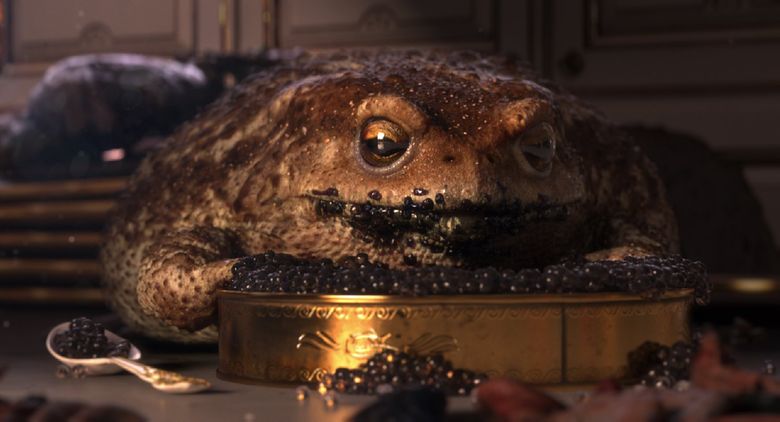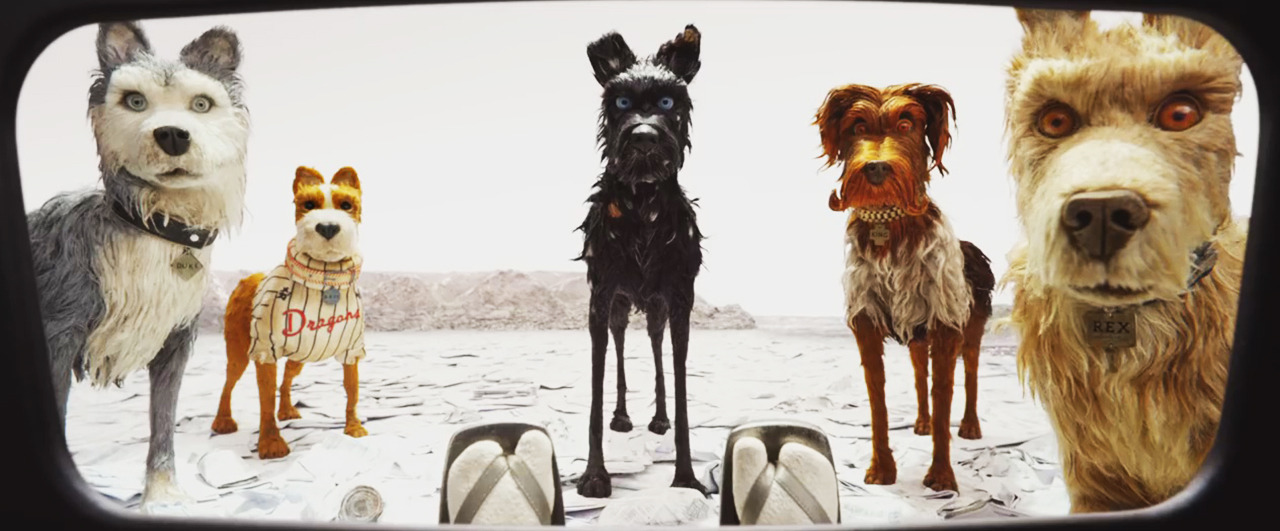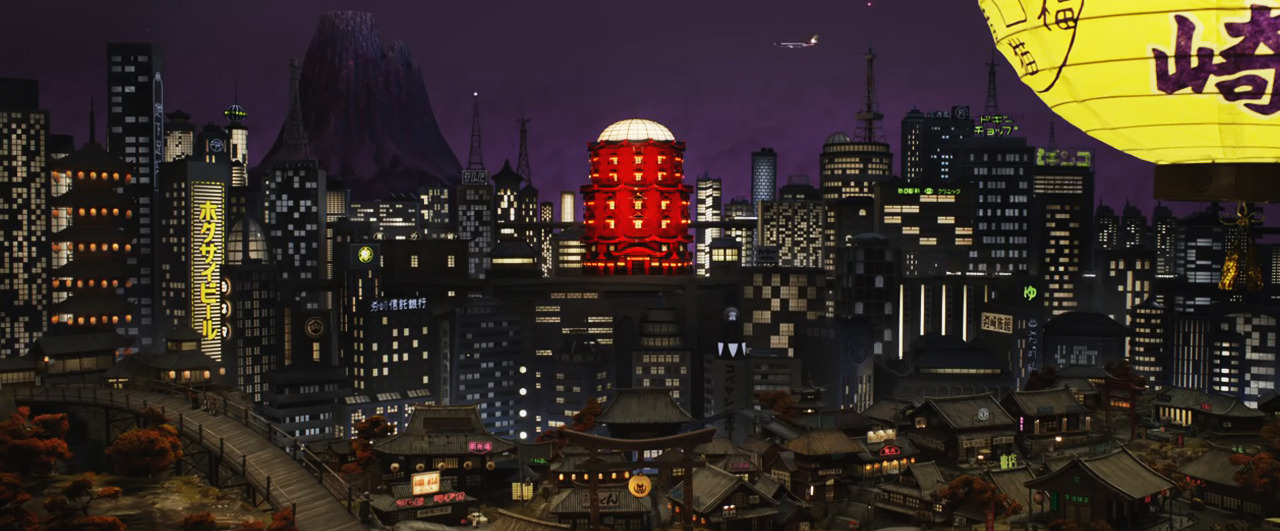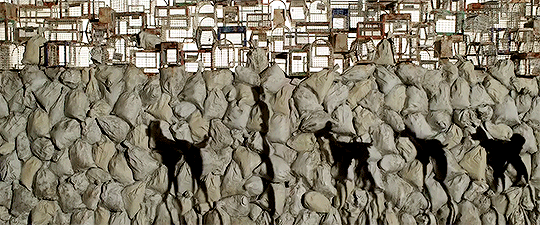List:
Dear Basketball – Glen Keane and Kobe Bryant, USA, 5 min.
Negative Space – Max Porter and Ru Kuwahata, France, 5 min.
Lou – Dave Mullins and Dana Murray, USA, 7 minutes
Revolting Rhymes – Jakob Schuh and Jan Lachauer, UK, 29 minutes
Garden Party – Victor Caire and Gabriel Grapperon, France 7 minutes
Lost Property Office (additional film) – Daniel Agdag, Australia, 10 minutes
Weeds (additional film) – Kevin Hudson, USA, 3 minutes
Achoo (additional film) – Elise Carret, Camille Lacroix, Charlotte Perroux, Lucas Boutrot, Maoris Creantor, Pierre Hubert, France, 7 minutes
—
Somehow, The Boss Baby is now an Oscar-nominated film – and so maybe it’s sufficient to say it’s been a darn slow year for animation.
But even with an unexpected nomination in the category, there’s no lack of talent featured in the animated Oscar Nominated Shorts of this year. Dear Basketball, Negative Space, Lou, Revolting Rhymes, and Garden Party are all contenders. Lost Property Office, Weeds, and Achoo are additional, highly-commended films you can catch in theatres alongside the Oscar nods.

In 2018, Kobe Bryant is now both a star basketball player and a star film producer, with Dear Basketball penned as a love letter to the end of an illustrious career. It’s sweet and simple, pleasant to watch, but probably more touching for basketball fans than for the uninterested layperson.
Despite a narrative that perhaps borders upon just being a highlight reel of Kobe Bryant’s career, Glen Keane does what Glen Keane does – just as he had in many other short films like Duet and Nephtali, and just as he did for Disney. His animation style in undeniably compelling, sketches full of a motion and fluidity that fills us in where the film may come up empty in terms of a more captivating story.
Opposite of what Dear Basketball may lack, Negative Space gives life to a suitcase, to the simpleness of Ron Koertge’s poem with clothes like a tidal wave, belts slithering like snakes into the sides of a bag. The premise is easy, but the execution is sophisticated.

A boy floats in an ocean of clothes and emerges between of the buttons of his dad’s shirt. A taxi cab drives onto wooden floorboards and becomes a toy car circling around the living room. These are beautiful transitions done through stop-motion, a creative practice in breathing tone and vision into a script. It’s uncomplicated at only five minutes long, but the visuals are delicate, creative, and with an incredible punch line.
The obligatory Pixar nomination of the year is Lou – cute and heart-warming and absolutely beautifully rendered. It follows the story of a pile of lost and found objects that becomes the guardian of the playground, rising from its box to set things right when a bully begins to terrorize the other kids.

The film is interesting and very endearing, but is also very standard Pixar-fare. Not a bad thing at all, considering the general consistency and quality of films produced over the years by the studio. And Lou is no exception to that. It’s engaging and sweet, but it is also nothing ground-breaking.
Much less feel-good, much less full of those clear-cut morals of Lou, Revolting Rhymes is an adaption of Roald Dahl’s poems, featuring the nominated first episode. Having read these fairytales a long time ago, the film does measure up in some ways by wrapping up the story with a terrific ending and some very tongue-in-cheek story-telling. However, it still comes second to the charm of the original rhymes. It feels a bit lacking in some ways, but the characterization, the animation details, the picture-book perfect palette, and the satirical material it’s built upon prove to be still very appealing to watch.

When we move away from the obvious comedy of Revolting Rhymes, we have Garden Party, a pic that is much more subdued and sinister in its humour. It’s a gorgeous, hyper-realistic film, full of lush colours and gaudy scenery. And while Garden Party is a visual banquet, it’s an understated story of macabre undertones, an apprehensive underbelly to the stunning animation. Amphibians from the garden follow their instincts into an extravagant house. A fat toad feasts in a rotting kitchen on multi-coloured macarons. Two frogs find themselves underneath the plush covers of a bed in disarray, and countless croaking creatures lounge about, swimming in the murky depths of a pool. As night falls, the lights come up, the garden is lit with fountains, music, and a terrible twist.

There’s an interesting selection, from realistic CGI frogs to the organic pencil and pastel sketches of basketball players. And while I have my opinions, it’s difficult to predict a winner from the fact that Dear Basketball, Negative Space, Lou, Revolting Rhymes, and Garden Party are pretty much nothing alike.
So catch the Oscar Nominated Shorts at Michigan Theater and other select places before March 4th, and decide for yourself.
Student tickets are $8.


























